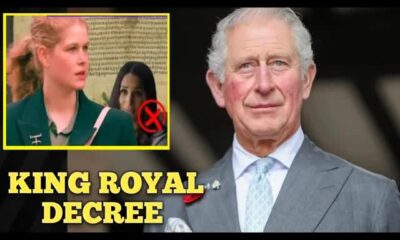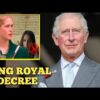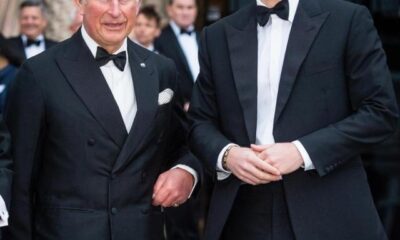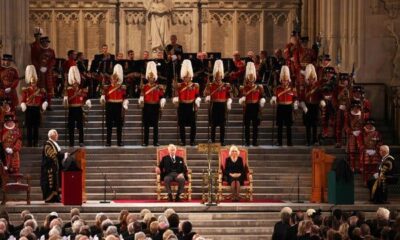The News
King Charles Reveals His Successor Amid Health Challenges
In a significant moment for the British monarchy, King Charles has finally addressed the future of the royal lineage, announcing the next king of England.
This revelation comes after a lifetime of preparation and an unexpected health scare that has left many wondering about the future of the crown.
Charles's journey has been long and complex, shaped by the legacy of his mother, Queen Elizabeth II, who reigned for more than 70 years.
Born on November 14, 1948, at Buckingham Palace, Charles Philip Arthur George was destined for kingship from the start.
When his mother took the throne in 1952, a mere three-year-old Charles began to feel the weight of royal expectations.
Unlike previous heirs, he grew up during a time when tradition began to clash with the winds of modernization, making his path unique.
Charles was the first royal heir to receive an education outside the palace walls, attending school alongside other British children.
His time at Gordonstoun, a strict boarding school in Scotland, was tough, but his father, Prince Philip, believed these challenges would instill resilience.
From an early age, Charles displayed a personal touch that distinguished him from his predecessors.
His passion for nature and the arts led him to earn a history degree from Cambridge University, making him the first royal heir to graduate from college.
Long before climate change became a pressing global issue, Charles was already championing environmental causes, even facing backlash for breaking royal protocol by speaking out on social matters.
However, Charles's path was not without its hurdles.
His marriage to Lady Diana Spencer in 1981 ended in a highly publicized divorce, which significantly impacted his public image.
Yet, his subsequent marriage to Camilla Parker Bowles in 2005 helped reshape that narrative, revealing a more relatable and human side to the king.
As Queen Elizabeth's health deteriorated, Charles stepped up to shoulder more responsibilities, preparing himself for the inevitable transition.
When the queen passed away on September 8, 2022, he was ready to take the throne.
His coronation on May 6, 2023, marked the beginning of his reign as King Charles III, blending centuries-old traditions with a modern approach to inclusivity.
During the coronation, Charles pledged to uphold the law and the Church of England, while also embracing diversity with leaders from various faiths participating in the ceremony.
The line of succession is well-defined, with his eldest son, Prince William, next in line, followed by his grandchildren, Prince George, Princess Charlotte, and Prince Louis.
Thanks to recent changes in succession laws, gender no longer plays a role in determining the order.
Despite stepping back from royal duties, Prince Harry remains in the line of succession, along with his children, Archie and Lilibet.
However, in January 2024, King Charles faced a health scare that turned into a cancer diagnosis, initially stemming from treatment for a benign enlarged prostate.
Choosing transparency, Charles aimed to raise awareness and combat the stigma surrounding cancer.
Although he reduced his public engagements during treatment, he continued to participate in state affairs.
By April, he returned to his royal duties, marking his recovery with a visit to a cancer treatment center, a powerful symbol of resilience.
















































































